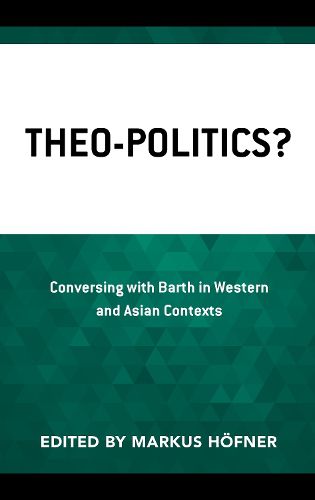Readings Newsletter
Become a Readings Member to make your shopping experience even easier.
Sign in or sign up for free!
You’re not far away from qualifying for FREE standard shipping within Australia
You’ve qualified for FREE standard shipping within Australia
The cart is loading…






Using the theological work of Karl Barth as a resource for present-day inquiry, the contributors in this volume discuss the complex interconnections between the religious and the political designated by the term theo-politics. Speaking from various political and cultural contexts (Germany, the United Kingdom, the United States, Hong Kong, Taiwan, and the People’s Republic of China) and different disciplinary perspectives (Protestant Theology, Political Sciences, and Sociology), the contributors address contemporary challenges in relating the religious and the political in Western and Asian societies. Topics analyzed include the impact of diverse cultural backgrounds on given theo-political arrangements, theological assessments of political power, the political significance of individual and communal Christian existence and the place of Christian communities in civil societies. In their nuanced discussions of these topics, the contributors neither advocate for a privatized, apolitical understanding of the Christian faith nor for a religious politics seeking to overcome modern processes of differentiation and secularization. Critically engaging Barth’s theology, they examine the Christian responsibility in and for the political sphere and reflect on the practice of such responsibility in Western and Asian contexts.
$9.00 standard shipping within Australia
FREE standard shipping within Australia for orders over $100.00
Express & International shipping calculated at checkout
Using the theological work of Karl Barth as a resource for present-day inquiry, the contributors in this volume discuss the complex interconnections between the religious and the political designated by the term theo-politics. Speaking from various political and cultural contexts (Germany, the United Kingdom, the United States, Hong Kong, Taiwan, and the People’s Republic of China) and different disciplinary perspectives (Protestant Theology, Political Sciences, and Sociology), the contributors address contemporary challenges in relating the religious and the political in Western and Asian societies. Topics analyzed include the impact of diverse cultural backgrounds on given theo-political arrangements, theological assessments of political power, the political significance of individual and communal Christian existence and the place of Christian communities in civil societies. In their nuanced discussions of these topics, the contributors neither advocate for a privatized, apolitical understanding of the Christian faith nor for a religious politics seeking to overcome modern processes of differentiation and secularization. Critically engaging Barth’s theology, they examine the Christian responsibility in and for the political sphere and reflect on the practice of such responsibility in Western and Asian contexts.